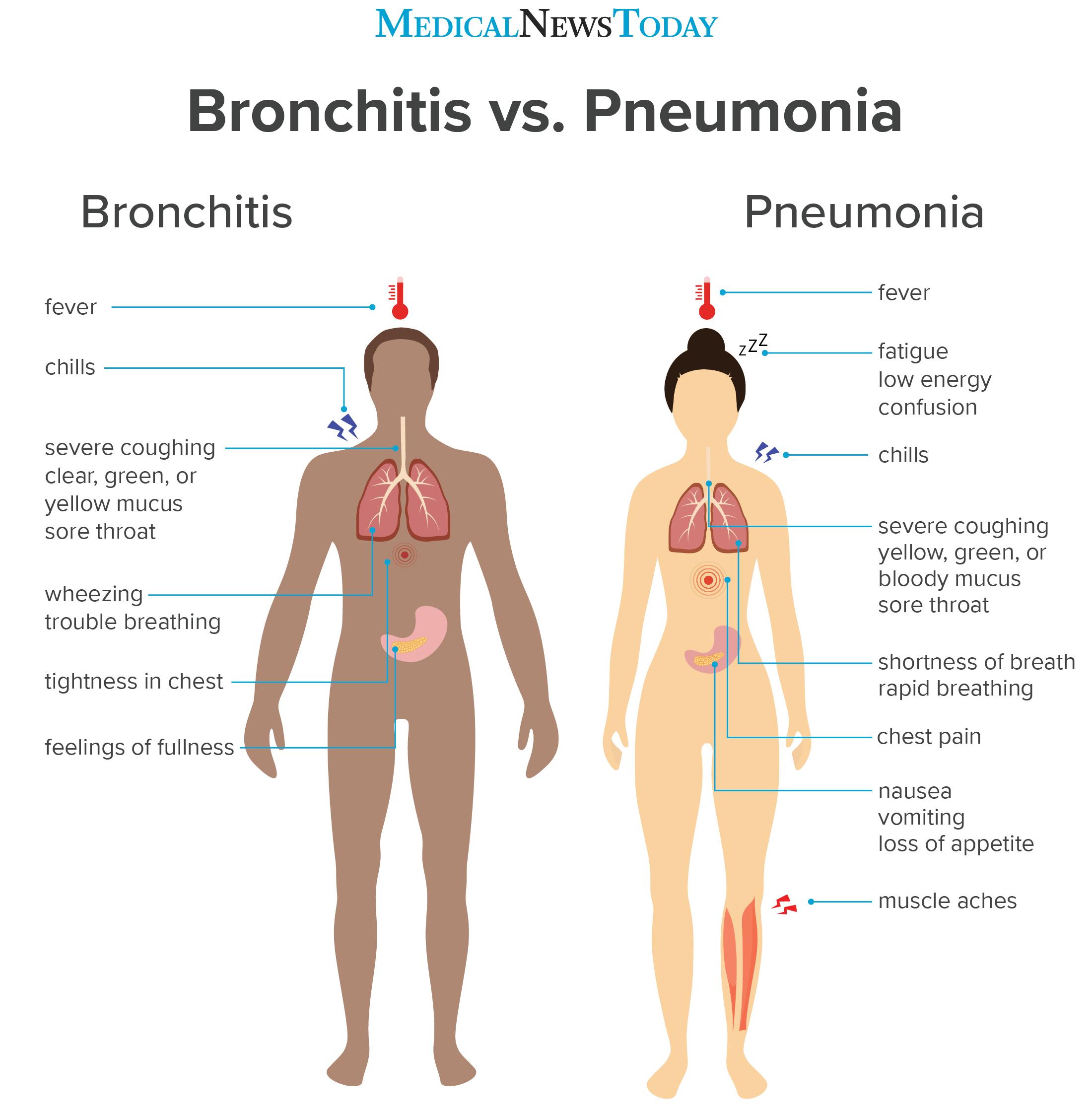However coughing serves an important purpose for people with pneumonia because it helps them expel phlegm from their lungs. You probably took anti-cough anti-mucous anti-congestion anti-histamine medications and Tylenol or Ibuprofen for fever or headache.
 Bronchitis Vs Pneumonia How To Tell
Bronchitis Vs Pneumonia How To Tell
You should always finish taking your course of antibiotics even if you feel better.

Treatment for pneumonia cough. Patients with community-acquired pneumonia often present with cough fever chills fatigue dyspnea rigors and pleuritic chest pain. Patients should ask their doctors. After a few weeks you suffer from stubborn persistent cough day and night.
Coughing causes pain and pain can cause coughing. Rest antibiotics and drinking plenty of fluids is the usual treatment. Pain killers stop pain and therefore can stop coughing if its a cycle.
OTC antihistamines such as diphenhydramine Benadryl OTC decongestants such as pseudoephedrine Sudafed While you recover you should also. Pneumonia is a lung infection that causes inflammation in the tiny air sacs inside your lungs. Cough syrup can be helpful in reducing the frequency of coughing from patients with pneumonia.
Antibiotics which target and treat bacterial infections. The typical pneumonia treatment plan consists of rest antibiotics and increased fluid intake. When a patient presents with suspected community-acquired.
If your pneumonia is so severe that you are treated in the hospital you may be given intravenous fluids and antibiotics as well as oxygen therapy and possibly other breathing treatments. Unless a healthcare professional tells you otherwise you should always finish taking a prescribed course of antibiotics even if you feel better. In the worst-case scenario you suffered from bronchitis or pneumonia and got conventional treatment with antibiotics.
Mild pneumonia can usually be treated at home. Try not to breath in cold air as your lungs will be sensitive to the cold. Antiviral medications for viral pneumonia.
People in hospitals spread their drug-resistant bacteria to others leading to more severe and difficult-to-treat cases of pneumonia. Bacteria adapt and change over time when exposed to antibiotics making them less effective called antimicrobial resistance. Some people feel better and are able to return to their normal routines within a week.
It does get better just give it time. Pain relieverfever reducer to help bring down your fever and pain symptoms. More than one type of antibiotic may be needed to treat your pneumonia.
The most effective treatment for a cough caused by pneumonia is to treat the underlying cause of the pneumonia according to Mayo Clinic. More severe cases may need hospital treatment. More severe cases may need hospital treatment.
The treatment for pneumonia depends on its cause and severity. Common treatment for pneumonia includes. Mild pneumonia can usually be treated at home with rest antibiotics if its likely be caused by a bacterial infection and by drinking plenty of fluids.
Build up resistance to temperature changes over time. Cough medicine to help reduce coughing and allow for more rest. Antibiotics for bacterial pneumonia.
You should take it easy even if your symptoms begin. It may take time to recover from pneumonia. They may fill up with so much fluid and pus that its.











